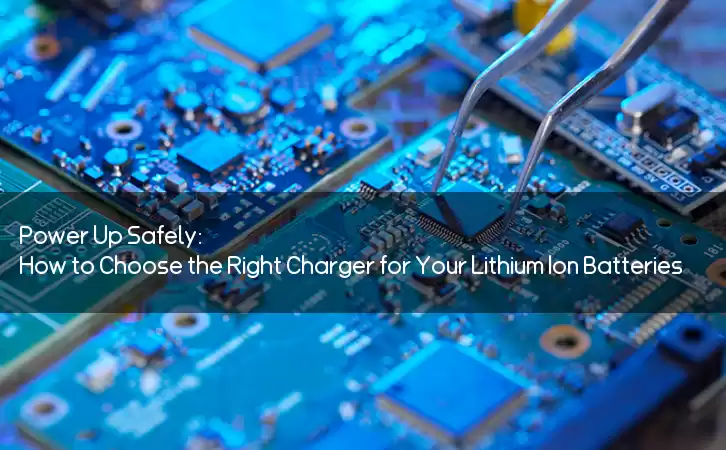Information Center
Power Up Safely: How to Choose the Right Charger for Your Lithium Ion Batteries
Published:2023-08-08 20:35:58 Author:Green WCND Views:35As technology evolves and becomes more prevalent in our daily lives, the need for portable and rechargeable power sources has become increasingly necessary. Lithium ion batteries have become a popular choice for powering devices such as smartphones, laptops, and electric vehicles due to their high energy density and long lifespan. However, in order to recharge these batteries, it is crucial to use the proper charger to ensure safety and efficiency.

First and foremost, it is important to note that not all lithium ion batteries are created equal. The charging requirements for each battery can vary depending on factors such as the chemistry, capacity, and voltage. Thus, it is crucial to use a charger that is compatible with the specific battery being charged.

One of the most common types of lithium ion batteries is the 18650, which is used in a variety of devices including flashlights and vape pens. 18650 batteries typically require chargers with an output of 4.2 volts and a charging current of 0.5-1.0 amps. It is recommended to use a charger specifically designed for 18650 batteries, such as the Nitecore i4 or the XTAR VC4.
For larger lithium ion batteries, such as those used in electric vehicles or home solar systems, specialized chargers are often required. These chargers typically have higher voltages and currents to accommodate the higher capacity of these batteries. For example, the Tesla Wall Connector is designed to charge their electric vehicle batteries at a rate of up to 80 amps and up to 240 volts.
When selecting a charger for a lithium ion battery, it is also important to consider safety features such as overcharge prevention and short circuit protection. If a lithium ion battery is overcharged or charged too quickly, it can become damaged or even explode, so it is crucial to use a charger with these safety features to prevent accidents.
In conclusion, it is essential to use the appropriate charger when recharging lithium ion batteries to ensure safety and optimal performance. Different types of lithium ion batteries have different charging requirements, so it is important to select a charger that is compatible with the specific battery being charged. Additionally, selecting a charger with safety features such as overcharge prevention and short circuit protection is equally important to prevent accidents. By following these guidelines, users can safely and efficiently recharge their lithium ion batteries and enjoy the benefits of portable power.
Battery testers of different voltages exhibit significant differences in several aspects, and a 12V battery tester is primarily used for testing a range of spec···
Battery Testers (battery capacity testers/battery detectors) indeed come in various types tailored for different products. These different types of battery test···
The advantages and disadvantages of battery testers are as follows:AdvantagesFlexibility:Battery testers can accommodate various testing modes, making them adap···
Understanding the testing accuracy of golf cart battery testers is crucial for ensuring the precision of test results. Here are some methods to assess the testi···





